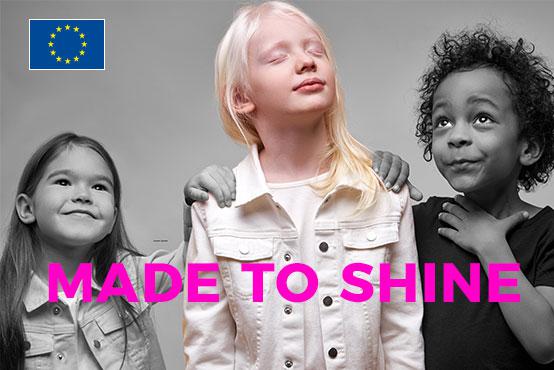Object of beliefs and myths for centuries, albino people are often stigmatized and attacked around the world. The EU condemns such acts of violence or discrimination.
Considered ghosts or magical beings by some in sub-Saharan Africa, albino people actually suffer from a rare, non-contagious, genetically inherited condition that results in a lack of melanin pigment in the hair, skin and eyes, causing vulnerability to sun exposure. On top of the physical problems they carry –almost all are visually impaired and are prone to developing skin cancer-, they often face discrimination and stigma based on their skin colour, especially in countries where the majority of the population is dark-skinned. On International Albinism Awareness Day, the EU reaffirms its commitment to the defence of albinos’ human rights and condemns any kind of violence or discrimination towards this collective.
On December 18, 2014, the United Nations’ General Assembly adopted a resolution establishing June 13th as International Albinism Awareness Day. While in North America and Europe only 1 in every 17.000 to 20.000 people have some form of albinism, this condition is much more prevalent in sub-Saharan Africa. It is estimated that 1 in 1.400 people is affected in Tanzania, and the prevalence goes as high as 1 in 1.000 for select populations in Zimbabwe and for other specific ethnic groups in Southern Africa.
As a general rule, the greater contrast in pigmentation between albinos and their fellows, the greater degree of discrimination. While in the western world their stigma often leads to name-calling and bullying, in sub-Saharan Africa there have been hundreds of cases of attacks and killings of persons with albinism. In a region where they are believed to be magical beings or ghosts, sometimes they mutilate or even kill them, so their body parts can be used for witchcraft rituals. Persons with albinism are also being denied equal access to health care, social protection, education and employment in some countries, directly hindering their fundamental human rights.
Read also
The European Union continues to call for the effective investigation of crimes against people with albinism and for fair trials. At international level, the European Union will pursue its support to the UN Independent Expert on the Enjoyment of Human Rights by Persons with Albinism, and to the effective implementation of the Regional Action Plan on Albinism in Africa 2017-2021, a continental response endorsed by the African Commission on Human and Peoples’ Rights.
However, there is a bright side to albinism, as we get to know more and more albino public figures. The UN Human Rights Office of the High Commissioner has compiled a series of positive stories from relevant albino figures who managed to make their way despite stigmatization.
It is the case of Roben X, a rapper and activist from Memphis (US) who went through very difficult times before becoming a star. “Basically I am a black male that looks Caucasian born to African American parents. Needless to say this was extremely difficult for me growing up. I was bullied throughout my entire life. I was hurt and I was heartbroken most of my child hood”, he says. A life change came when he found a way to relieve the pain and deal with his emotions: music. Then he became a rapper. “People look and stare just as they did when I was a small boy. What has changed though is my understanding of who I am; the fact that I accept me as me. I look in the mirror and accept me”.
To get to know more stories on albinism like this one, visit the UN Human Right´s Albinism website(link is external).
European Union



























































